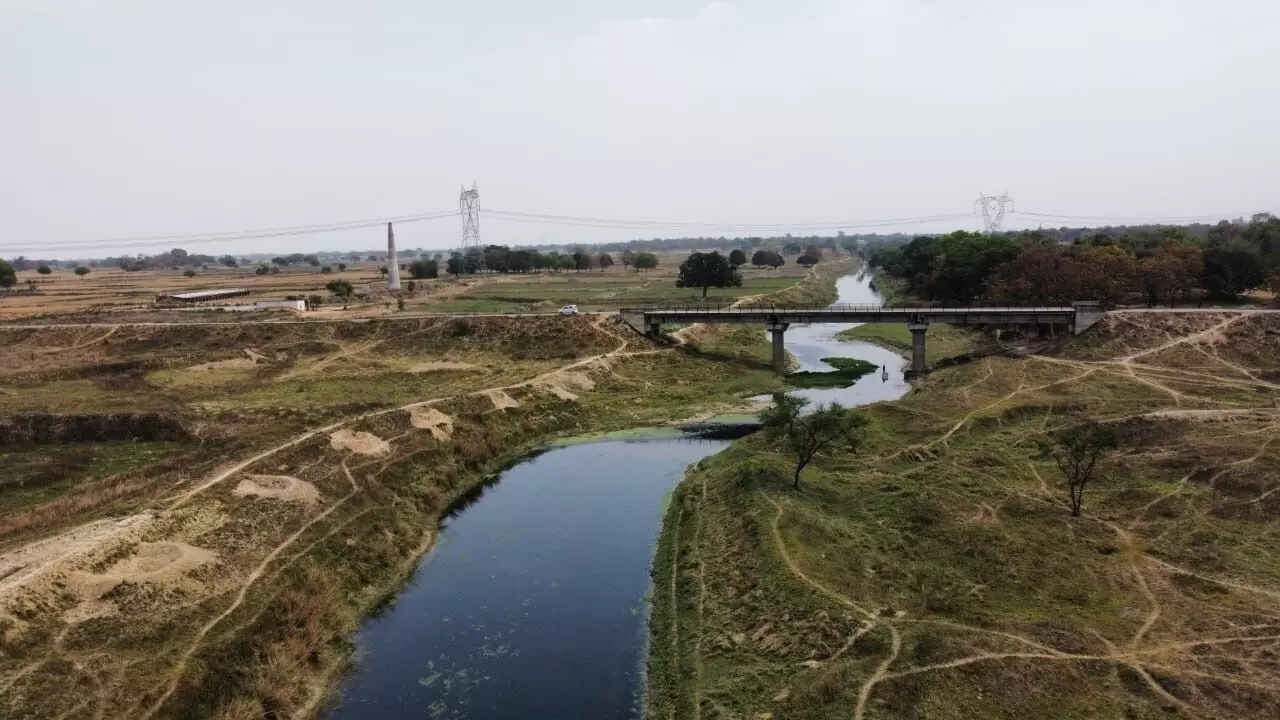Smart Laboratory on Clean Rivers developed at IIT-BHU to rejuvenate small rivers
The SLCR project is designed to rejuvenate the Varuna River, leveraging cutting-edge technology and international expertise
By Newsmeter Network
New Delhi: In a bid to sustainable river management, a Smart Laboratory on Clean Rivers (SLCR) has been developed at IIT-BHU to rejuvenate small rivers through innovative and sustainable approaches.
This initiative, part of the Green Strategic Partnership between India and Denmark, aims to rejuvenate small rivers through innovative and sustainable approaches, the Jal Shakti ministry said in an official statement.
The SLCR project is designed to rejuvenate the Varuna River, leveraging cutting-edge technology and international expertise.
With an initial funding of Rs 16.80 crore from Ministry of Jal Shakti and an additional grant of Rs 5 crore from Denmark, the project aims to create a collaborative platform for government bodies, academic institutions and local communities to develop and implement solutions for clean river water.
A hybrid lab model will be established at IIT-BHU, coupled with an on-field living lab at the Varuna River. This model will allow for real-world testing and scaling of solutions aimed at improving river health, the statement said.
The SLCR's institutional framework includes a robust appraisal mechanism to ensure excellence and diligence in project execution.
The Indo-Danish Joint Steering Committee (JSC), the highest authority within the SLCR, will provide strategic guidance and review the project's progress. Additionally, a Project Review Committee (PRC), comprising members from the National Mission on Clean Ganga (NMCG), Central Water Commission (CWC), Central Ground Water Board (CGWB), IIT-BHU and Denmark's Urban Sector Counsellor, will oversee quality control at the project level.
Coordination efforts will be managed by the Multi-Stakeholder Working Group (MSWG), chaired by the district magistrate of Varanasi and co-chaired by representatives from NMCG and IIT-BHU.
The SLCR Secretariat, a joint establishment of NMCG and IIT-BHU, will handle day-to-day operations, project development and knowledge dissemination.
The Joint Steering Committee has already cleared four key projects under the SLCR initiative. Among them is the development of a Decision Support System (DSS) for water management aimed at analysing basin water dynamics through advanced hydrological models and data analytics.
This project, expected to last two to three years, will facilitate real-time monitoring and scenario simulations to support holistic planning and effective water management.
Another vital project focuses on the characterisation of emerging pollutants in the Varuna River. Over the next 18 months, advanced analytical techniques will be employed to identify and quantify contaminants, creating a comprehensive fingerprint library for water quality monitoring and proposing effective remediation strategies, the statement said.
In line with the SLCR's vision, a selected stretch of the Varuna River will serve as a demonstration site for holistic interventions, based on research and consultation.
The project aims to preserve the region's archaeological and historical heritage while promoting economic and social development.
The final project centres on developing a hydrogeological model of the Varuna Basin for Managed Aquifer Recharge (MAR).
Utilising advanced geophysical techniques, the project will identify optimal recharge sites and develop a comprehensive river-aquifer flow dynamics model over the next 24 months, supporting informed decision-making and water resource optimisation, the statement said.